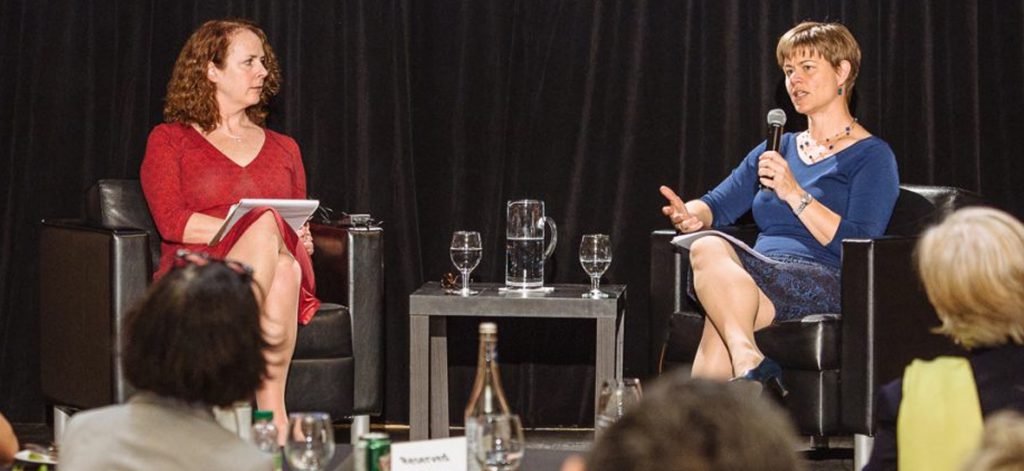By: Juanita Bawagan
22 May, 2018

“There’s boundary making, both symbolically and socially, casting people as ‘us’ versus ‘them,’” she said at the David Dodge CIFAR Lecture in Toronto on May 2. Bloemraad is a senior fellow in CIFAR’s Successful Societies program and a professor of Sociology at the University of California, Berkeley.
Politicians like Donald Trump who cast immigrants and refugees as others, often do so with a language of “national values.” But are “national values” intrinsically hostile to immigrants or could this language be used to promote inclusivity? To answer these questions, Bloemraad created an experiment that couched issues in “American values.”
In her survey, Californians were presented a scenario with slightly different wordings. Each situation described a woman who was without food or healthcare. However, the situation was prefaced with either saying that the United States has not done enough to uphold “American values,” civil rights or human rights.
Bloemraad was surprised that people were more likely to see the issue as a problem when it was framed by American values, even when the subject was described as an undocumented immigrant. Respondents were also more likely to support government intervention in these cases. This held true for White, Asian and Latino respondents and among Conservatives and Liberals.
“It just means that these frames ring true to someone. It resonates with them,” said Bloemraad. “If a frame is not resonant, it literally falls on deaf ears.”
“Not embracing the language of values leaves it to people who might be willing to put up more boundaries and borders against others.”
American values may resonate because it uses the language of “rights” without the obligation. When discussing American values, people often describe a right to freedom and property. They also use compassionate language like “helping” and avoid describing what we “should” do.
Bloemraad has a personal interest in how this research connects to Canada. Her family immigrated to Canada from Europe and she grew up in Toronto and Saskatoon before moving to the United States. She’s an expert in Canada’s support of immigration levels and multiculturalism.
She says the national values discourse in Canada is more inclusive of diversity although that doesn’t mean that Canada is immune to anti-immigrant backlash. Moderator Elizabeth McIsaac, President of the Maytree Foundation, pointed to the example of a Canadian politician who campaigned on a “Canadian values” test for immigrants.
While people who advocate on behalf of immigrants may be wary of using this language, Bloemraad says it can be used to promote an inclusive message.
“Not embracing the language of values leaves it to people who might be willing to put up more boundaries and borders against others. And it might be a chance to retake the language of values and recast it in a way that is more inclusive.”
Notifications